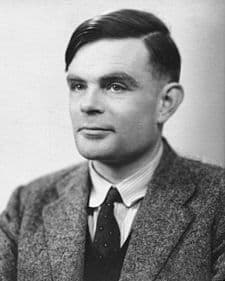Supercomputer Eugene Goostman Passes The ‘Turing Test’
Supercomputer Eugene Goostman developed by Vladimir Veselov and Eugene Demchenko has become the first ever machine to pass the Turing Test. As you might be aware Turing Test is a question and answer game developed by British mathematician, logician, cryptanalyst, computer scientist and philosopher Alan Turing. Any machine which can be mistaken for a human more than 30% of time during a series of five minute keyboard conversations is said to pass this test. Eugene Goostman managed to pass this test with a success rate of 33% at the Turing Test 2014 event organised by University of Reading in the UK.

The developers of ‘Eugene’ programmed it to simulate a 13 year old boy. The idea behind that was most teenagers claim to know everything but at their age it is probable that they do not know everything. They developed a character with believable characteristics and even game it a date of birth in the year 2001. Before the contest they improved the dialogue controller to make the conversations more human like. In the future they hope to improve this feature by introducing conversation logic in the program.
So what implication does this achievement in our day to day life? According to its creator Vladimir Veselov this will boost interest in chatbots and artificial intelligence. For example, if you have used mobile messaging service Nimbuzz, you might have encountered Jimmy, its official chatbot. With capabilities like Eugene it can answer queries from unrestricted topics in a human like manner.
Before concluding the article, we would like to open the discussion to CE forum members on other implications of Eugene’s achievement. Before heading out to the comment section below, please go through the #-Link-Snipped-# on the University of Reading website and its coverage in <a href="https://www.telegraph.co.uk/technology/news/10884839/Computer-passes-Turing-Test-for-the-first-time-after-convincing-users-it-is-human.html" target="_blank" rel="nofollow noopener noreferrer">Computer passes 'Turing Test' for the first time after convincing users it is human</a>.

The developers of ‘Eugene’ programmed it to simulate a 13 year old boy. The idea behind that was most teenagers claim to know everything but at their age it is probable that they do not know everything. They developed a character with believable characteristics and even game it a date of birth in the year 2001. Before the contest they improved the dialogue controller to make the conversations more human like. In the future they hope to improve this feature by introducing conversation logic in the program.
So what implication does this achievement in our day to day life? According to its creator Vladimir Veselov this will boost interest in chatbots and artificial intelligence. For example, if you have used mobile messaging service Nimbuzz, you might have encountered Jimmy, its official chatbot. With capabilities like Eugene it can answer queries from unrestricted topics in a human like manner.
Before concluding the article, we would like to open the discussion to CE forum members on other implications of Eugene’s achievement. Before heading out to the comment section below, please go through the #-Link-Snipped-# on the University of Reading website and its coverage in <a href="https://www.telegraph.co.uk/technology/news/10884839/Computer-passes-Turing-Test-for-the-first-time-after-convincing-users-it-is-human.html" target="_blank" rel="nofollow noopener noreferrer">Computer passes 'Turing Test' for the first time after convincing users it is human</a>.
0

